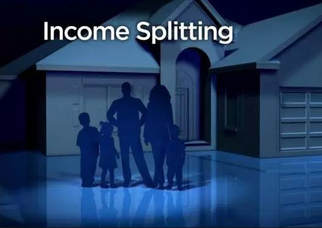|
Scott Park, CPA, CA On December 13, 2017, the Department of Finance released additional guidance on the split income rules for adults that will take effect January 1, 2018. This guidance provides some clarification on the far-reaching tax change proposals initially introduced back on July 18, 2017. The proposal will expand the tax on split income rules that are currently in place related to amounts received by a family member under the age of 18. In this context, "split income" will generally include dividends or interest, but not salary, paid by a private corporation to an individual from a related business. What You Need to Know If a member of a business owner’s family falls under any of these “exclusion categories” noted below, the CRA will automatically decide not to tax them at the highest marginal tax rate.
Family members aged 25 or older who don’t meet any of these exclusions would be subject to a reasonableness test to determine how much income, if any, would be subject to the highest marginal tax rate. In certain cases, adults aged 18 to 24 who have contributed to a family business with their own capital will be able to use the reasonableness test on the related income. Continued Concerns Although the Department of Finance released these guidelines to clarify the tax changes to split income rules, they still do not address continued concerns that many problematic elements remain with regards to a reasonableness test. The income sprinkling proposal will inevitably be complicated to apply, require significant paperwork and documentation for the business to maintain and the rules are open to subjective interpretation by CRA tax auditors. The rules could also lead to uncertainty, tax appeals and litigation in CRA audit situations. Recommendations Businesses that will be impacted by these income sprinkling proposals should take full advantage of the current rules as they currently exist for the remainder of 2017. For corporations with a December 31, 2017 year-end, consideration should be made with regards to paying dividend amounts to a spouse or adult family member before the end of the year if they currently do not meet the “off-ramp” exclusions noted above. Since the rules kick in on January 1, 2018, businesses will have 1 year to get compliant. That means non-service based businesses will have a full year to get onside with the 10% ownership test while service-based businesses and professional corporations will have to put family members such as their spouse on payroll. Disclaimer: The blogs posted on Scott Park & Co Inc. website provide information of a general nature. These blog posts should not be considered specific advice since each person's personal financial situation is unique and fact specific. Please contact us prior to implementing or acting upon any of the information contained in one of our blogs. Scott Park & Co Inc. cannot accept any liability for the tax consequences that may result from acting based on the information contained therein. Comments are closed.
|
C A T E G O R I E S
All
P O P U L A R P O S T S
December 2021
|


 RSS Feed
RSS Feed